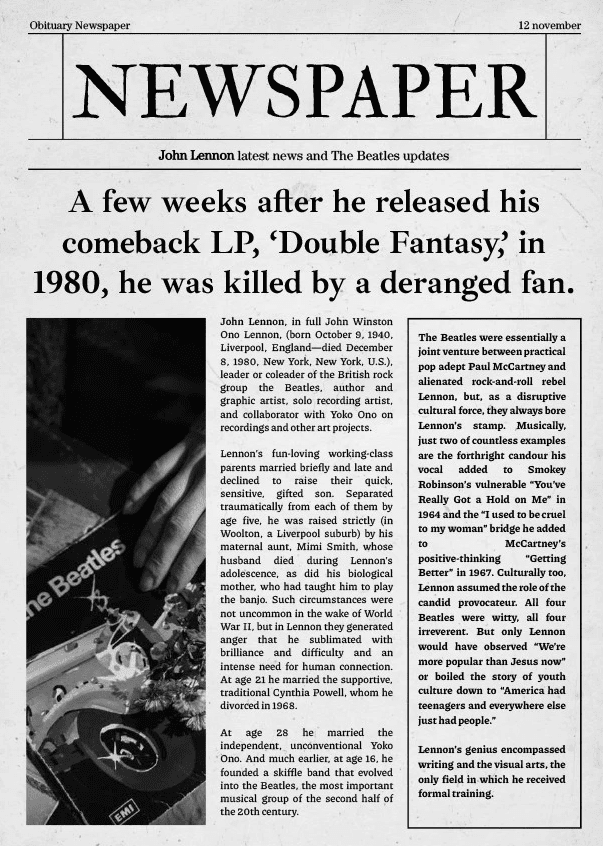Write and share a legacy that honors a life well lived.
The Obituaries Information Hub
An obituary is more than a death notice. It is a chance to tell the story of a person’s life, honor their relationships, and help loved ones say goodbye.

Key Things To Know
Writing an obituary can feel overwhelming in the midst of grief, but it is also an opportunity to reflect, celebrate, and preserve the memory of someone you love.
- Obituaries typically include key facts and personal stories: Name, age, date of death, place of residence, and surviving family members are standard, but you can also share personality, achievements, and what they loved most.
- Tone can be formal, personal, humorous, or poetic: There’s no one right way to write an obituary. It should reflect the voice and values of the person being remembered.
- You can publish obituaries in multiple places: Options include local newspapers, online memorial sites, funeral home websites, social media, and community newsletters.
- There are often word or character limits in print: Newspapers may charge by the word or line, so you might write a short version for print and a longer version for online platforms.
- Include service information if available: Let people know about funeral, memorial, or celebration of life events, including dates, times, and any special requests.
- Consider including a cause of death, but it’s optional: If the family chooses to share it, it can prevent speculation and help others process the loss. Some prefer to keep this private.
- You can invite donations or actions in their honor: Obituaries often include suggested charities, legacy funds, or ways people can honor the person's memory.
- Spellings and details matter: Always double-check names, dates, and locations. Small errors can cause confusion and take away from the message.
- You can write your own obituary ahead of time: Some people prewrite their obituaries or include drafts in their estate planning documents as a way to share their own voice.
- There is no wrong way to honor someone: Whether you keep it simple or write pages of memories, the goal is to help others remember and celebrate a life.
Resources
Articles
Frequently Asked Questions
Disclaimer: The information provided on this website and by Buried in Work is for general informational purposes only and should not be considered legal advice. Please consult with a qualified attorney or subject matter expert for advice specific to your situation.



